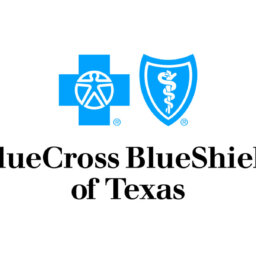
Medicare vs. Supplemental Insurance
According to data from the Centers for Medicare and Medicaid Services (CMS), nearly 60 million Americans received coverage provided by the federally regulated health insurance program as of 2018. Of these individuals, more than 21 million were enrolled in a Medicare Advantage plan, while the remainder maintained enrollment in Original Medicare.
Related: Medicare Advantage 101
But, is this the only coverage each of these beneficiaries receives? Do they also carry supplemental insurance that covers some of the gaps not covered by Medicare? Here’s where we can help.
IHS Insurance Group has crafted this article to answer one core question: If you already have Medicare, do you also need supplemental insurance?
To help ensure everyone’s on the same page, let’s start by briefly discussing the program’s basics.
Which Coverage is Provided Under Medicare?
Medicare Part A provides coverage for services like hospital care (long-term and short-term), skilled nursing facility care, custodial care (including most nursing homes), hospice and palliative care, home health care (e.g., part-time skilled nursing, medically-related social services, home aides, physical/occupational therapy).
Comparatively, Part B, the second section of Original Medicare, covers things like outpatient care, preventive services, ambulance services, and durable medical equipment (DME).
While all of this is undoubtedly positive, perhaps the biggest downfall when it comes to Original Medicare (Parts A and B together) is that it only covers 80 percent of these healthcare services and product costs. As such, beneficiaries must purchase “supplemental” insurance to help cover this gap. Otherwise, they will be responsible for these costs themselves.
Next, we’ll take a closer look at how this works.
What Coverage Does a Medicare Supplemental Insurance Plan Offer?
Medicare supplements, also frequently referred to as Medigap coverage, provide insurance against the 20 percent of crucial healthcare coverage not provided under Parts A and B of Original Medicare. This is especially the case when it comes to medically necessary services (those used to address or diagnose your condition) or preventative services (those that help you prevent or detect early illnesses, such as the flu).
Related: What is Medicare Supplement (Medigap) Insurance?
Other crucial coverage potentially provided under a Medigap plan include clinical research, ambulance services, durable medical equipment (DME), mental health, second opinions before surgery, and limited prescriptions.
Together, when asking the question, “Do I need supplemental insurance if I have Medicare,” the emphatic answer is, “Yes.” After all, you want to ensure you have coverage in place for necessary medical services and equipment, and that you have to pay as little as of pocket for them as possible.
In addition to the coverage gap they fill, another big difference is that compared to Parts A and B, which are issued by the federal government, Medigap plans are issued by independent insurance companies. Some of the top-rated names in the industry—all of which IHS Insurance Group represents—include Mutual of Omaha, AETNA, and BCBS of Texas.
How Do Medicare Supplement Plans Work?
Medigap plans are lettered A through N, each of which provides a different mix of coverage and deductibles, depending on your needs and overall budget.
For example, a Medigap Plan A comes with no Part A deductible, no coverage for skilled nursing care coinsurance, and no coverage for foreign travel. On the other hand, a Plan N supplement does provide coverage for skilled nursing care coinsurance, as well as 80% coverage for foreign travel, but it also comes with a Part A deductible.
Given all of the coverage options available to you, what’s the best way to determine which Medigap plan is right for you?
How Can You Choose the Best Medicare Supplement Plan?
If we’ve said it once, we’ve said it a thousand times: choosing a Medicare supplement plan isn’t complicated. This is because, whether you choose a plan through Insurance Company XYZ or the same policy from their biggest competitor, each one is federally mandated to provide the exact same coverage.
Instead, the only difference is what you might pay based on the company’s underwriting focus. As an overly simplistic example, Insurance Company XYZ might focus on enrolling younger Medicare recipients with better health records (when applicable and legal, of course), and will consequently model their rates to be more attractive to this demographic.
On the other hand, Insurance Company XYZ’s number one competitor, Awesome Incorporated, is focused on attracting clients with preexisting conditions who might best match with non-underwritten plans.
With these details in mind, you’ll want to start by figuring out which Medigap plan provides the coverage that best matches your lifestyle. Then, you’ll want to ensure the price for your coverage doesn’t break the bank. And finally, you can select your carrier.
For additional insight into balancing your needs and preferences, please visit and bookmark our informative article, 3 Steps For Choosing Your 2020 Medigap Plan.
Bottom Line: IHS Insurance Group Can Help You Decide if You Need a Medicare Supplement Plan
The team at IHS Insurance Group has more than a decade of experience helping clients choose the best Medigap plans at the most attractive prices, and from some of the nation’s top insurance companies.
Need a FREE Quote or have questions regarding Medicare or Medigap Coverage? We have three convenient ways to reach us:
- If you prefer to talk to a licensed agent directly, please call (866) 480 5063
- If you prefer to fill out a quick form and have an agent get back with you at your convenience, use the GET A FREE QUOTE
- Lastly, for those that want an immediate quote, please click HERE
Also, check out our Medicare FAQ’s here.















